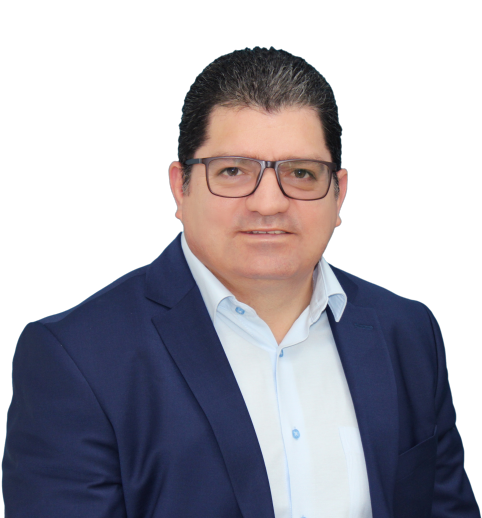Radiology refers to a specialty of medicine where images of various parts of the body are interpreted in order to diagnose a disease.
Radiologists, medicinal doctors boasting specialized training to interpret medical images for diagnosis, interpret different images and give reports to referring clinical doctors. This includes pediatricians, surgeons, internists, and obstetricians to work as a team for providing care.
To further help you understand radiology at Al Farid Hospital, we’ve curated an extensive guide to understanding diagnostic radiology.
What are the Different Types of Radiology?
There are various specialties in radiology. These include:
Diagnostic Radiology
Diagnostic radiologists utilize various imaging procedures to obtain images of the inside of the body in order to diagnose diseases and injuries. They may use various imaging techniques like:
- X-rays
- Radionuclides
- Ultrasounds
- Electromagnetic radiation
Interventional Radiology
Interventional radiology involves using medical imaging to offer therapy to people with various noncancerous conditions.
For instance, imaging from an interventional radiologist can help support a surgical procedure. This imaging, in turn, can make surgical procedures safer, as well as ensure a faster recovery time.
Typically, interventional radiologists focus on keyhole surgery. Here radiologists make small cuts instead of larger ones and use tiny cameras to see inside the body.
Radiation Oncology
Radiation oncology involves using radiation-based therapy to treat different types of cancer. This therapy uses high energy radiation to damage cancer cells, which pauses their spreading.
Radiation oncology is a great way to reduce symptoms, as well as cure conditions.
Who is a Radiologist?
Radiologists are medicinal doctors that specialize in treating injuries, diagnosing, and diseases with the help of medical imaging and procedures. This includes X-rays, CT scans, magnetic resonance imaging, ultrasounds, and so on.
Radiologists typically complete up to 13 years of training including graduating from an accredited medical school, a 4 year of residency, and an additional ½ years of fellowship of super specialized training.
Technology Used in Radiology
Let’s discuss some of the technology used in radiology:
Radiographs
This includes x-rays to image chest, bones, and abdomen.
CT
It stands for ‘computed tomography.’ Here, x-rays from a doughnut-shaped machine forms an image on the basis of intelligent computer calculations.
MRI
Otherwise, known as Magnetic Resonance Imaging, here magnetic fields and radio waves alongside computer processing make images within the body.
Ultrasounds
It uses sound waves to make moving images on a monitor.
Mammography
It uses x-rays that are specially powered, positioned, and aimed at breast tissues.
Fluoroscopy
Here, x-rays are used to produce real time and moving images of the body for various procedures. It includes stents, narrowed vessels and imaging of the gastrointestinal tract.
Why Radiology is Crucial to Medical Care
Radiology, otherwise known as diagnostic imaging, focuses on imaging for medical purposes. It includes radiographers, biomedical engineers, radiologists, sonographers, nurses, medical physicists, and additional support staff.
Many of the tests offered by radiology are unique in the way that they allow doctors to see inside the patient’s body. An array of revolutionary techniques and methods can be used to offer this view including ultrasound, mammography, fluoroscopy, bone mineral densitometry, PET scan, X-ray, and so on.
Present day, radiology is a key diagnostic tool for various different diseases, can help predict specific outcomes, and help monitor treatment. Here’s why the field has become crucial to medical care:
- X-ray allows doctors to see inside the body and diagnose a broken bone, diseases, and so on which are necessary for medical care
- Apart from X-ray, imaging technology like MRI, CT, angiography, and fluoroscopy offer real-time and high-quality imaging of the blood vessels, digestive system, 2D and 3D maps of the tissue, and cross-sectional views of the body
- Radiographers offer doctors accurate tests necessary for diagnosing an issue, as well as offer proper treatment
- According to an in-depth research, the rate of a new case of cancer is 442.4 per 100,000 people per year. Radiology can offer proper diagnosis and the course of treatment for cancer
- Radiology offers incredible disease management by offering physicians better options, a plethora of tools, and futuristic techniques for treatment and detection
Why Should You See a Radiologist at Al Farid Hospital
An appointment with a radiologist can potentially save your life. The combination of top-notch quality imaging tests alongside their ability to interpret them can assist doctors in diagnosing the right diseases and conditions.
Moreover, it can help them kick-start the appropriate treatment at the right time. In certain cases, this can mean the thin line between life and death. Here are some of the most common reasons you should consider seeing a radiologist at Al Farid Hospital:
- Blocked arteries or other vessels
- Broken bone
- Foreign objects in your body
- Infections
- Pregnancy
- Screening for tumors or cancer
- Torn muscles
- Trauma and accidents
Why Choose Diagnostic Radiology at Al Farid Hospital
Present in Villaggio Mall, Doha Qatar, Al Farid Hospital offers patients access to some of the best, most experienced doctors.
Here are several reasons you should choose Diagnostic Radiology at Al Farid Hospital:
Access to State-of-the-Art Technology
Depending on your procedure, your appointment may vary from a couple of minutes to 2 hours. But one thing remains constant; the use of revolutionary technology.
Our staff at Al Farid Hospital utilizes the latest, best technology for all kinds of imaging tests.
Accurate Diagnosis and Treatments
Our team of highly skilled and experienced doctors combine state-of-the-art tech with their expertise to offer accurate diagnosis, appropriately monitor diseases, and treat various conditions and injuries.
Diagnostic imaging offers better treatments and a closer look at what’s going on inside your body. Venture onto our website to get access to a team of experienced and proficient doctors.
Sources
https://oarinfo.ca/radiologists/importance-radiology
https://www.webmd.com/cancer/cancer-what-radiologist
https://www.medicalnewstoday.com/articles/327331
https://www.radiologyinfo.org/en/info/article-your-radiologist
https://www.radiology.ca/article/when-would-i-see-radiologist
https://www.news-medical.net/health/What-is-Radiology.aspx
https://cmescience.com/reasons-why-radiology-is-so-crucial-to-medical-care/
https://www.neighborhoodrad.com/2017/11/21/when-should-i-see-a-radiologist/
https://rad-aid.org/resource-center/radiology-serving-the-world/what-is-radiology
https://www.acr.org/Practice-Management-Quality-Informatics/Practice-Toolkit/Patient-Resources/About-Radiology

